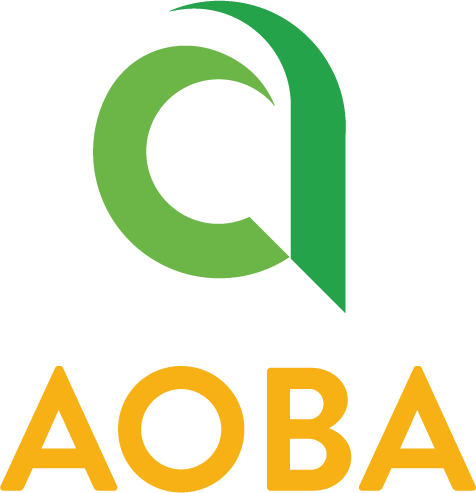AGC - How to Request Inclusive Access Arrangements for IBDP Exams
Overview: What Are Inclusive Access Arrangements?
The International Baccalaureate (IB) is committed to ensuring that all students can demonstrate their skills and knowledge fairly. To this end, the IB provides "Inclusive Access Arrangements" (IAAs), often referred to as accommodations.
These are adjustments to exam conditions for students with documented learning support requirements, disabilities, or long-term medical conditions. The goal of these arrangements is to remove barriers and provide equitable access, not to give any student an unfair advantage.
For any arrangement to be approved by the IB, it must be the student's "normal way of working" within the Aoba Online IBDP. This means the support has been identified, implemented, and used for in-class learning and assessments well before the final exams.
The Role of the IBDP Coordinator
At Aoba, the IBDP Coordinator is the essential liaison for all accommodation requests.
Students and families cannot apply directly to the IB.
The Coordinator is the intermediary who guides you through the process, collects the required documentation, and submits the formal request to the IB on your behalf.
All communication with the IB regarding your request will be managed by the Coordinator, who will then inform you of the IB's final decision.
Please contact the IBDP Coordinator as soon as a need is identified - ideally at the beginning of the DP1 year.
Common Types of Accommodations
Accommodations are tailored to the specific, documented needs of the student. Common arrangements include:
Additional Time: (e.g., 25% or 50% extra time)
Rest Breaks: Supervised breaks that do not count toward the exam time.
Scribe (Amanuensis): A person who writes down the student's dictated answers.
Reader: A person who reads the exam questions to the student.
Use of Technology: Such as a word processor (laptop) for typed responses (with spell-check/grammar functions disabled).
Separate Room: A quiet, separate venue with reduced distractions, either individually or in a small group.
Modified Papers: Such as large print or braille.
Prompter: A person who can tap the student on the shoulder to re-focus their attention.
Note: Some arrangements, like rest breaks and a separate room, may be approved at the Coordinator's discretion, while others (like extra time or use of a word processor) require formal authorization from the IB.
Required Documentation and Evidence
This is the most critical part of the process. A request will not be considered by the IB without complete, professional, and recent documentation.
You must provide:
A Formal Psycho-Educational or Medical Report:
Must be recent (typically within three years of the exam session).
Must be from a qualified and registered professional (e.g., an educational psychologist, neuropsychologist, or medical doctor).
Must contain a clear diagnosis of the specific learning difficulty, disability, or medical condition (e.g., Dyslexia, ADHD, Anxiety Disorder, physical disability).
Must explicitly recommend specific accommodations (e.g., "25% extra time," "use of a word processor") and justify why each is necessary based on the functional impact of the diagnosis.
Evidence of "Normal Way of Working":
There must be evidence that the requested accommodation reflects how the student regularly functions in their Aoba classes.
This can include evidence from Individualized Education Plans (IEPs), teacher observations, or work samples completed using the accommodation.
In most cases, this evidence will be provided directly by the school, organized by the DP Coordinator and appended to the submission sent to the IB.
Parent/Student Consent Form:
Parental consent is required before the school can share confidential medical/educational information with the IB for the purpose of the request. A consent form will be provided by the school.
The Application Process
Step | Action |
| The parent or student proactively contacts the Aoba IBDP Coordinator to discuss the need for accommodations. Timing: As early as possible (start of DP1 is recommended). |
| The family is responsible for obtaining and providing all necessary psycho-educational or medical reports and evidence of "normal way of working." |
| The IBDP Coordinator reviews the documentation to ensure it is complete and meets IB requirements. |
| The Coordinator completes the official IB request forms and securely uploads all supporting evidence to the IB's online system (IBIS). |
| The IB reviews the case (this can take several weeks) and issues a decision: Approved, Denied, or Request for More Information. |
| The IBDP Coordinator receives the final decision and formally communicates it to the student and family. |
Deadlines and Key Dates
This is not a last-minute process. The IB operates on a strict global schedule.
Deadline Type | Schedule | Details |
IB Final Deadline | For the May exam session, this is typically mid-November of the DP2 year. | The IB sets a firm global deadline for coordinators to submit all requests. If this deadline is missed, there is a high likelihood that the request can not be considered. |
Aoba Internal Deadline | End of September of DP2 year. | To allow time for review, follow-up, and submission, Aoba's internal deadline for families to submit all complete documentation will be significantly earlier than the IB deadline. |
ACTION REQUIRED | You must contact the IBDP Coordinator ahead of time to confirm the exact deadlines and requirements for your unique situation. Failure to meet this internal deadline will likely mean your request cannot be submitted to the IB. | |
Further reading:
https://www.ibo.org/programmes/inclusive-education-in-the-ib/
